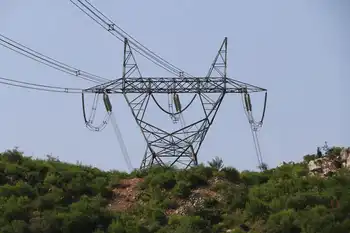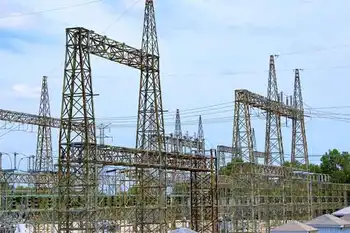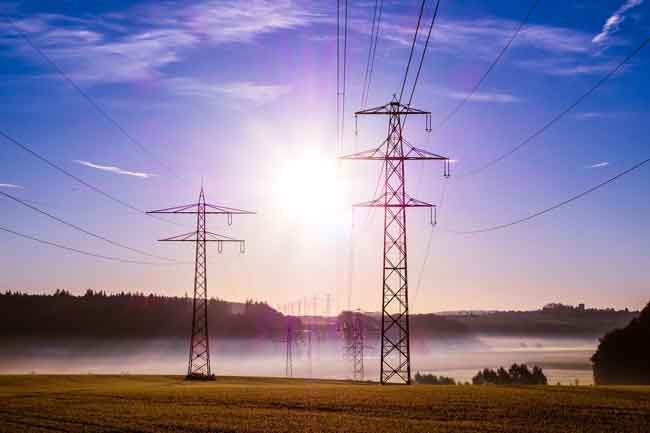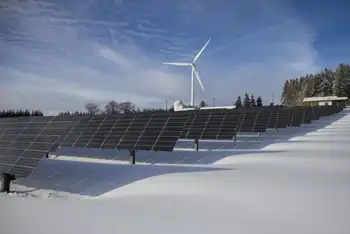Carbon caps would aid FPL
The company's parent, Juno Beach-based FPL Group Inc., expects federal legislation curtailing carbon emissions to boost its annual pre-tax earnings by $220 million to $690 million by 2012, FPL Group Chairman and Chief Executive Officer Lew Hay III said during the company's annual shareholder meeting.
"These are pretty big numbers, and they get bigger if you let your imagination run just a little while," Hay said.
Regardless of whether the federal government settles on a cap-and-trade system - as proposed by Sens. Joseph Lieberman, I-Conn., and John Warner, R-Va. - or carbon fees, FPL Energy stands to benefit, said Randy Clerihue, director of public affairs for FPL.
That's because energy costs will increase under both systems, but FPL Energy's emissions-free wind and solar projects won't be subject to the fees or credits.
So the firm will see higher margins when it sells electricity to other companies. "Other forms of energy that contain carbon, their costs will go up," Clerihue said. "So that pushes prices up across the board, including for carbon-free forms of energy."
Because FPL Energy is the country's largest supplier of wind and solar power, it would have an edge.
On the other hand, FPL Group's utility subsidiary, Florida Power & Light Co., could have to pay under a carbon-fee or cap-and-trade system. But the expense probably wouldn't be too great, said Mike Bedley, a partner with Apex Power Co. in Davie.
"As clean as this utility is, they may be very minimal," Bedley said.
A cap-and-trade initiative would put a legal limit on greenhouse gas emissions and require companies that exceed those limits to buy carbon credits from companies that are below their limits.
A carbon-fee system would charge companies for greenhouse gases, with much of the money returning to consumers as rebates. FPL Group prefers a fee.
"However, we have said that a cap-and-trade system would be a second-best option if it is designed correctly," Clerihue said.
It's hard to say how much carbon would cost under either proposal.
Some estimates peg it at $10 per ton, which starting in 2012 would give FPL Energy a $220 million annual boost in earnings before interest, taxes, depreciation and amortization, Hay said.
At $20 per ton of carbon, the figure jumps to $450 million.
At $30, it's $690 million.
"I'm not about to predict what the price of carbon will be," Hay said.
But he added that $10 is generally considered conservative.
Chances of the Lieberman-Warner legislation passing this year are "very minimal," said Rich Rosenzweig, chief operating officer of the New York-based carbon consulting firm, Natsource LLC.
But with broad political support for some form of carbon limits, the power industry is bracing for a change.
"This is the first time we've had this debate," Rosenzweig said. "Next year, with a new Congress and a new president, there will be a much higher probability that they'll actually pass a law."
Also at the meeting, FPL Group shareholders voted to approve the company's yearly executive incentive plan and reelect all 12 of the company's directors to a one-year term.
And FPL Group reaffirmed its average adjusted earnings per-share growth expectations of at least 10 percent annually from 2006 to 2012.
West Palm Beach resident Ed Arcentales, 84, one of a handful of shareholders who spoke at the meeting, praised FPL Group for its performance but cautioned executives about getting distracted by mergers such as a deal with Baltimore-based Constellation Energy LLC that fell apart in 2006.
Instead, Arcentales said, they should focus on safe operation of its plants, including the Turkey Point nuclear plant.
During a visit to the plant, the chairman of the Nuclear Regulatory Commission told FPL it needed to beef up staffing there.
"We don't want a disaster to happen," Arcentales said.
Related News

NDP takes aim at approval of SaskPower 8 per cent rate hike
REGINA - The NDP Opposition is condemning the provincial government’s decision to approve the Saskatchewan Rate Review Panel’s recommendation to increase SaskPower’s rates for the first time since 2018.
The Crown electrical utility’s rates will increase four per cent this fall, and another four per cent in 2023. According to a government news release issued Thursday, the new rates will result in an average increase of approximately $5 on residential customers’ bills starting on Sept. 1, 2022, and an additional $5 on April 1, 2023.
“The decision to increase rates is not taken lightly and came after a thorough review by the…





